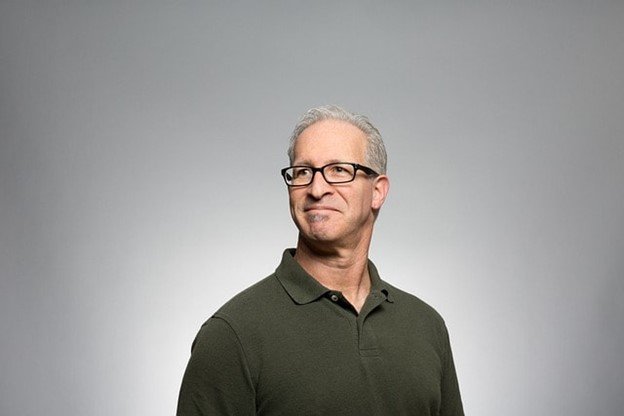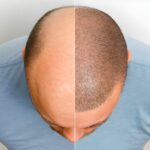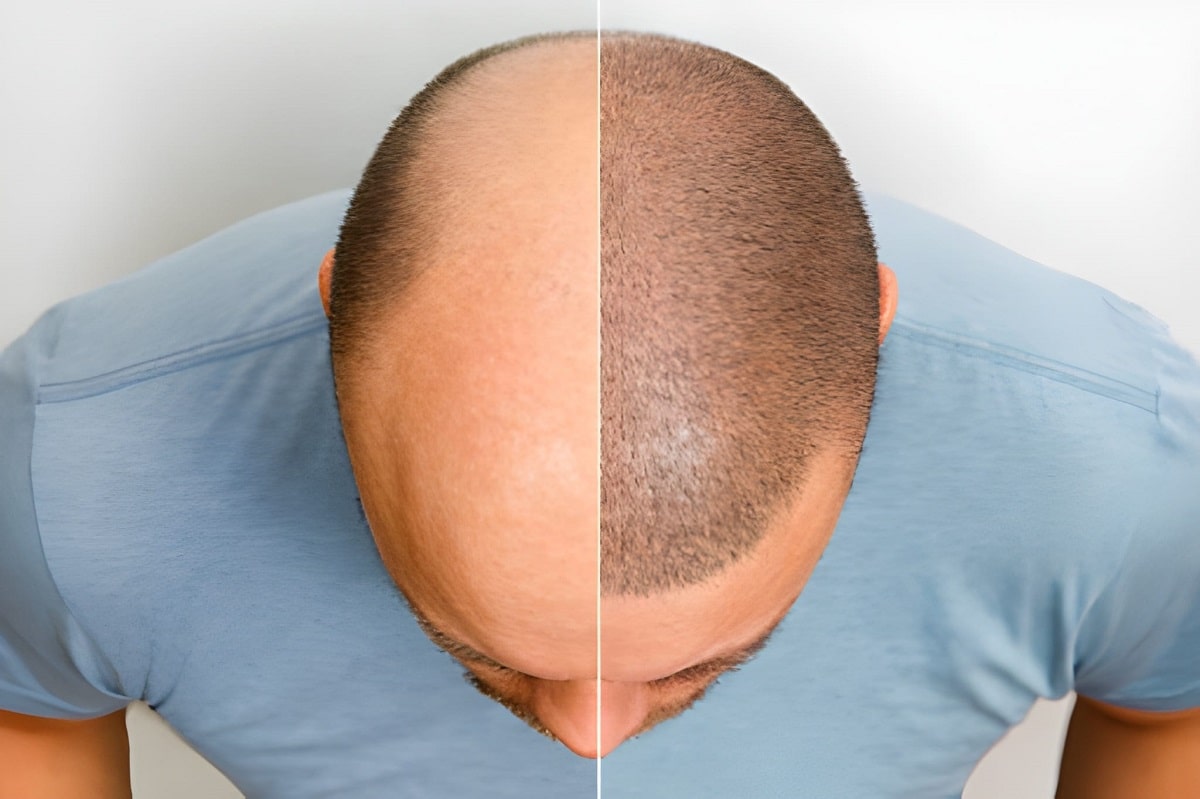We all know that drug use can have a variety of negative effects on your body, but one consequence that may not be discussed as often is hair loss.
For many people, hair is a source of confidence and identity, and the idea of losing it can be distressing. The answer to can drug use cause hair loss is a resounding yes, but we know that questions linger.
But how exactly does drug use contribute to cause hair loss, and are certain substances more likely to cause this problem than others? While some drugs produce hair loss in many patients, the severity can vary based on the individual and the specific drug.
In this article from Health Hair Care, we’ll take a closer look at the link between drug use and hair health, exploring the scientific reasons behind this issue and what can be done to prevent or reverse hair loss caused by drugs.
Understanding Hair Growth and Loss

Before diving into the connection between drug use and cause hair loss, it’s important to understand how hair growth works. Each hair follicle goes through a cycle consisting of three phases:
- Anagen phase: This is the growth phase, where your hair actively grows. This phase can last several years.
- Catagen phase: This is a transitional phase, where hair growth slows down, and it lasts for about two to three weeks.
- Telogen phase: This is the resting phase when hair stops growing and eventually falls out to make way for new hair. This phase lasts for about three months.
Hair loss, also known as alopecia, occurs when the hair follicles are damaged, disrupted, or forced into the resting phase too early. This can be caused by various factors, including hormonal changes, stress, poor nutrition, and, as we’ll explore, drug use, which can lead to significant hair fall.
Understanding Drug-Induced Hair Loss
Drug-induced cause hair loss is a common side effect of many medications, both Prescription and over-the-counter. This type of cause hair loss can occur through various mechanisms, such as damaging hair follicles, disrupting the hair growth Cycle, or altering hormone levels.
When drugs interfere with the normal functioning of hair follicles, they can cause the hair to enter the resting phase prematurely, leading to increased shedding and thinning. Understanding these mechanisms is crucial for developing effective treatment strategies to combat drug-induced hair loss and promote healthy hair growth.
Types of Hair Loss Caused by Drugs
There are two main types of hair loss caused by drugs: anagen effluvium and telogen effluvium. Anagen effluvium occurs during the active growth phase of hair, typically as a result of chemotherapy drugs. This type of hair loss is characterized by rapid shedding of hair, as the drugs target rapidly dividing cells, including those in the hair follicles.
On the other hand, telogen effluvium happens when hair shifts prematurely into the resting phase, leading to increased shedding and thinning. This type of hair loss can be triggered by various medications, including those that affect hormone levels or cause nutritional deficiencies.
How Does Drug Use Cause Hair Loss?

Drug use can contribute to cause hair loss in several ways. It can interfere with the normal hair growth cycle, deprive your body of essential nutrients, or directly damage hair follicles.
Additionally, illegal drugs that cause hair loss can lead to nutritional deficiencies and structural damage to hair. Let’s take a look at some of the most common ways different drugs can lead to hair loss:
Disruption of the Hair Growth Cycle: Many drugs can force hair follicles prematurely into the resting phase, leading to excessive shedding. This is called telogen effluvium, a form of hair loss where more hairs enter the resting phase than normal. Telogen effluvium is often seen a few months after drug use begins, as the shedding takes time to become noticeable. Hair loss from illegal drugs can disrupt the natural hair growth cycle, pushing follicles into the rest phase.
Nutritional Deficiencies: Drug use often leads to poor nutrition, as substances can suppress appetite and cause malabsorption of essential vitamins and minerals. Hair needs nutrients like biotin, zinc, and iron to grow properly. Without them, the hair becomes weak, brittle, and more likely to fall out. Chronic drug abuse can also lead to compulsive cause hair loss pulling due to tactile hallucinations or mental health issues like trichotillomania.
Hormonal Imbalances: Certain drugs, especially steroids and drugs affecting hormone levels, can lead to an imbalance of androgens (male hormones) in the body. High levels of androgens can cause hair loss follicles to shrink, leading to androgenetic alopecia, or pattern baldness. Drug abuse significantly impacts mental health, often exacerbating conditions like anxiety, depression, and chronic stress, which can cause physiological changes that negatively impact hair health.
Direct Follicle Damage: Some drugs are directly toxic to hair follicles, causing inflammation or damaging the cells that produce hair. This can result in scarring or permanent hair loss if the damage is severe. Cocaine addiction, for example, affects the body by altering sleep patterns due to poor nutrition and self-care.
Chronic drug abuse can lead to hair loss while stressing the importance of mental health. The psychological impact of losing hair can cause anxiety and depression, potentially triggering mental health disorders like body dysmorphic disorder and trichotillomania.
Drugs Known to Cause Hair Loss
Not all drugs cause hair loss, but certain substances have been shown to have a strong connection to this issue. Let’s examine a few of the most notorious culprits:
Stimulants (Crystal Meth, Cocaine, and Amphetamines)
Stimulants like crystal meth are particularly harsh on the body, and crystal meth causing hair to fall out is a real concern. These drugs increase the body’s production of stress hormones like cortisol, which can trigger telogen effluvium.
Chronic stimulant use also leads to poor dietary habits and dehydration, both of which deprive hair follicles of the nutrients they need to grow.
Furthermore, stimulant use can contribute to an overall unhealthy lifestyle, which exacerbates hair loss.
Alcohol
Heavy alcohol consumption is another factor linked to cause hair loss. Binge drinking and going bald may sound dramatic, but it’s a reality for some individuals. Alcohol depletes the body of key vitamins like B12 and folate, both of which are important for healthy hair growth.
Excessive alcohol use also contributes to dehydration, which makes hair brittle and prone to breakage. Over time, alcohol abuse can lead to liver damage, which further disrupts the body’s ability to process nutrients effectively, leading to more hair loss.
Opioids
Opioid use can disrupt the body’s natural hormone balance, leading to hair loss. Like other drugs, opioids can cause nutritional deficiencies, particularly in iron and vitamins needed for healthy hair. Opioid users also tend to experience poor sleep and high levels of stress, both of which can worsen hair loss over time.
Steroids:
Anabolic steroids, which are sometimes abused for muscle growth, can lead to high levels of dihydrotestosterone (DHT) in the body. DHT is a potent androgen that can shrink hair follicles, resulting in male pattern baldness. Cause Hair loss from steroids is often irreversible, especially if the drug is used over an extended period
Prescription and Over-the-Counter Medications
Many prescription and over-the-counter medications can cause hair loss. Some of the most common culprits include:
- Antidepressants: These can alter hormone levels and disrupt the hair growth cycle.
- Blood pressure medications: These can affect blood flow to the scalp, impacting hair health.
- Anti-inflammatory medications: These can interfere with the normal functioning of hair follicles.
- Hormonal medications: These can cause imbalances that lead to hair loss.
- Chemotherapy drugs: These target rapidly dividing cells, including hair matrix cells, leading to anagen effluvium.
- Anticoagulants: These can affect blood flow and nutrient delivery to hair follicles.
- Vitamin A and its derivatives: Excessive amounts can disrupt the hair growth cycle.
- Interferons: These can impact the immune system and hair follicle health.
- Antihyperlipidemic drugs: These can interfere with lipid metabolism, affecting hair structure.
These medications can cause hair loss by damaging hair follicles, disrupting the hair growth cycle, or altering hormone levels, leading to thinning hair and increased shedding.
How Drug Abuse Affects Hair Growth
Drug abuse can have a profound impact on hair growth in several ways:
- Damaging hair follicles: Substances like illegal drugs can cause inflammation and damage to hair follicles, leading to hair loss and thinning.
- Disrupting the hair growth cycle: Drug abuse can force hair follicles into the resting phase prematurely, resulting in increased shedding and thinning hair.
- Altering hormone levels: Drugs that affect hormone levels can lead to imbalances that trigger hair loss.
- Reducing blood flow: Drug abuse can constrict blood vessels, reducing blood flow to the scalp and depriving hair follicles of essential nutrients and oxygen.
These factors combined can significantly impact the hair growth cycle, leading to noticeable hair loss and thinning.
Can Hair Loss from Drug Use Be Reversed for Hair Regrowth?

The good news is that hair loss caused by drug use isn’t always permanent. If caught early and addressed quickly, it may be possible to reverse the damage. Here are a few steps you can take:
Stop Using the Drug: The first and most crucial step is to stop using the substance causing the problem. Once the drug is out of your system, your body can start healing, and your hair growth cycle may return to normal.
Improve Your Diet: Focus on consuming nutrient-rich foods that promote healthy hair growth. This includes lean proteins, leafy greens, nuts, and whole grains. Supplements like biotin, zinc, and vitamin D can also help strengthen hair and promote regrowth.
Reduce Stress: Chronic stress can worsen hair loss, so finding ways to relax and manage stress is important. Practices like meditation, yoga, and mindfulness can be helpful.
Consider Hair Growth Treatments: In some cases, over-the-counter or prescription treatments like minoxidil or finasteride may help stimulate hair growth. These treatments are most effective when hair loss is caught early.
Promoting Hair Growth and Reducing Hair Loss
There are several ways to promote hair growth and cause hair loss, even if it has been caused by drug use:
- Maintaining a healthy diet: Eating a balanced diet rich in essential nutrients like biotin, zinc, and iron can promote hair growth and reduce hair loss.
- Reducing stress: Chronic stress can exacerbate hair loss, so incorporating stress-reducing techniques like meditation, yoga, and mindfulness can help promote hair growth.
- Getting enough sleep: Adequate sleep is essential for overall health, including hair health. Aim for 7-8 hours of sleep per night to support hair regrowth.
- Using gentle hair care products: Harsh chemicals and excessive heat styling can damage hair. Opt for gentle, nourishing hair care products to cause hair loss and promote healthy hair growth.
- Avoiding excessive heat styling: Heat styling tools can weaken hair and lead to breakage. Minimize their use or apply a heat protectant to safeguard your hair.
By understanding the causes and mechanisms of drug-induced hair loss and taking proactive steps to promote hair growth and reduce hair loss, individuals can help mitigate the effects and maintain healthy, strong hair.
When to Seek Professional Help
If you’ve noticed significant cause hair loss and suspect that drug use may be the cause, it’s important to consult with a healthcare provider. They can help determine the root cause of your hair loss and provide recommendations for treatment. Cause Hair Loss can also be a sign of other underlying health conditions, so it’s essential to get a proper diagnosis.
It is Never Too Late to Change Habits Needed to Attain Healthy Hair
We hope our resource from Health Hair Care has shown how the relationship between drug use and hair loss is complex, but it’s clear that certain substances can interfere with the hair growth cycle, leading to thinning or balding.
Whether it’s binge drinking and going bald or experiencing crystal meth causing hair to fall out, the impact on hair health should not be underestimated.
Fortunately, with the right lifestyle changes and support, cause hair loss from drug use can often be reversed. Prioritizing your overall health and well-being will not only help your hair but also improve your quality of life in the long run.
So cultivate healthy habits, and drop a bookmark here for all the news that matters to your hair and health!











